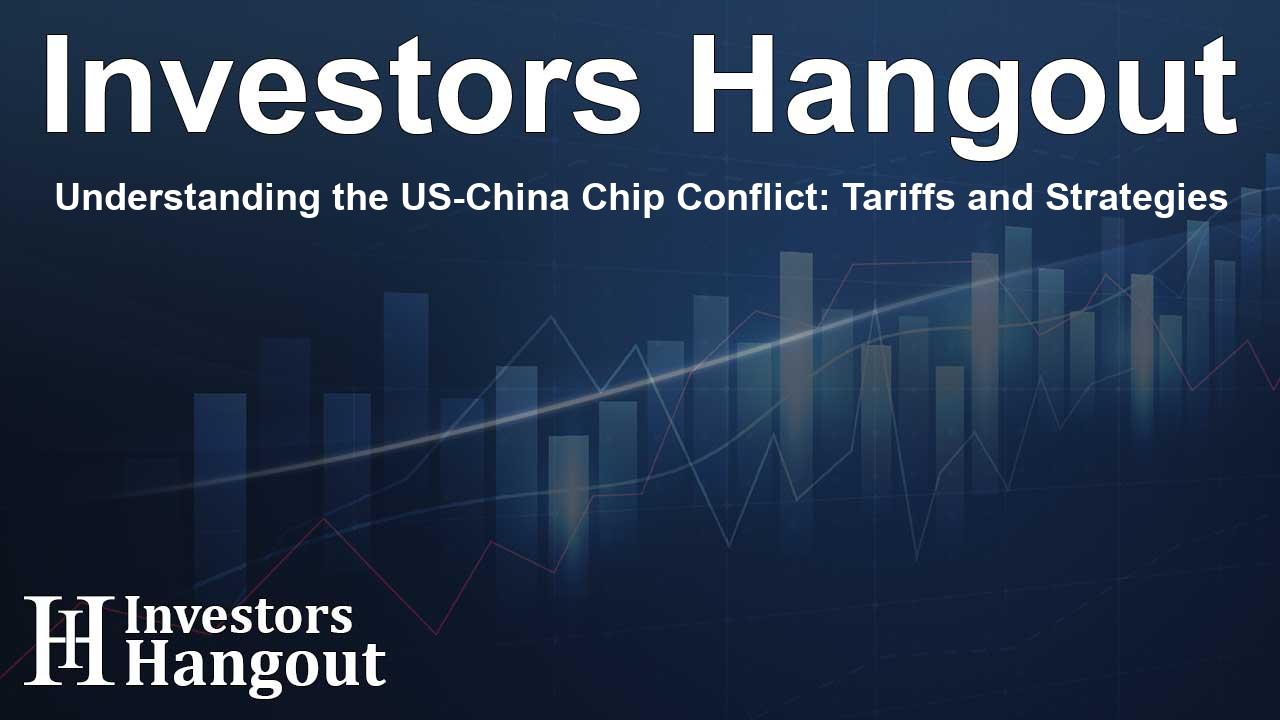Understanding the US-China Chip Conflict: Tariffs and Strategies

The Strategic Terrain of US-China Tariffs
In recent times, the narrative surrounding global trade revolves around a complex game involving chips and tariffs, highlighting a chessboard where nations vie for technological superiority. As competition intensifies between the US and China, every headline signals changes in their strategic plays.
Opening Moves in the Chip Arena
China's initial maneuver has been to secure critical technology, specifically targeting the advanced Nvidia and AMD chips, which are pivotal for artificial intelligence. This action goes beyond mere commerce; it represents a strategic effort to achieve computational superiority on the global stage.
The Rise of Domestic Solutions
In a bid to decrease reliance on foreign tech, China has rapidly advanced in domestic chip design. Companies like Huawei are pouring resources into their own chip innovations to bolster self-reliance, while simultaneously unveiling advanced AI models, albeit with some premature moves on the global chessboard.
The United States' Reaction
As China moves confidently, the US is also recalibrating its strategy, reassessing its export policies and industrial strategy. Major tech companies are cooling their capital expenditures, allowing for a shift in focus towards a realignment of infrastructure priorities.
Pursuing Trade Restrictions
Current US strategies are characterized by significant tariff threats and stringent export controls. A potential 245% tariff on all Chinese exports and a full export control on critical chips hints at a determined effort to stifle China's AI advancements. This strategic approach aims to fortify US tech and maintain dominance in the burgeoning AI arena.
The Ongoing Negotiations
In the midst of these strategies, negotiations remain static as the chess pieces continue to reposition. China’s desire for chip access clashes with the US's objectives of securing favorable trade conditions and technological supremacy.
Economic Impact
It's essential to note, however, that if and when export controls are eased, there will be economic ramifications: around 15% of revenue tied to critical chip sales will benefit the US economy significantly, with Nvidia contributing notably to this revenue stream.
Long-Term Strategy Formulation
Instead of a straightforward tariff battle, this situation evolves into a deeper confrontation for technological leadership. The adjustments made today set the groundwork for a more strategically aligned future.
The Broader Implications
The invisible yet potent forces at work look to establish stronger supply chains and a fortressed geopolitical strategy through tariffs and trade maneuvers. Ultimately, what appears to be a singular dispute encapsulates a larger, more consequential game for global technological primacy.
Frequently Asked Questions
What are the primary issues at play in the US-China chip conflict?
The main issues include access to critical chip technologies and export controls impacting trade and economic relations between the two nations.
How does China's domestic chip development affect US relations?
China's accelerated chip development aims to reduce dependency on U.S. technology, potentially escalating tensions and prompting stricter U.S. trade policies.
What are the implications of U.S. tariffs on China's chip exports?
U.S. tariffs can significantly affect Chinese tech companies' revenues, ultimately crippling their efforts in the AI sector and reshaping global supply chains.
How does this strategic battle influence global technology trends?
The outcome of this conflict could dictate global investment patterns, technological advancements, and the alignment of countries in terms of technological partnerships.
What future scenarios can we anticipate from this ongoing situation?
As both nations navigate this complex interplay, expect ongoing negotiations, potential shifts in trade policies, and further advancements in AI technologies as both aim to secure their positions.
About The Author
Contact Olivia Taylor privately here. Or send an email with ATTN: Olivia Taylor as the subject to contact@investorshangout.com.
About Investors Hangout
Investors Hangout is a leading online stock forum for financial discussion and learning, offering a wide range of free tools and resources. It draws in traders of all levels, who exchange market knowledge, investigate trading tactics, and keep an eye on industry developments in real time. Featuring financial articles, stock message boards, quotes, charts, company profiles, and live news updates. Through cooperative learning and a wealth of informational resources, it helps users from novices creating their first portfolios to experts honing their techniques. Join Investors Hangout today: https://investorshangout.com/
The content of this article is based on factual, publicly available information and does not represent legal, financial, or investment advice. Investors Hangout does not offer financial advice, and the author is not a licensed financial advisor. Consult a qualified advisor before making any financial or investment decisions based on this article. This article should not be considered advice to purchase, sell, or hold any securities or other investments. If any of the material provided here is inaccurate, please contact us for corrections.
